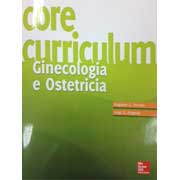246.INTESTINAL SURGERY IN ADVANCED OR RECURRENT OVARIAN CANCER: SURVIVAL AND MORBIDITY ANALYSIS
A. Gallo, G. Trezzi, L. Carlini, A. Villa, L. Busci, L. Frigerio
Int J Gynecol Cancer 2007, 17, 937–948
In patients with advanced or recurrent ovarian cancer, complete tumor resection during surgery is difficult. In terms of residual tumor
debulking, several studies have reported the usefulness of combined bowel resection. Optimal residual disease can be achieved in 70–98%
of cases by performing not only combined bowel resection, but also diaphragm stripping and/or resection, peritoneal implant ablation
or other operations as needed. Objective: To retrospectively assess the outcome of patients undergoing intestinal surgery for advanced or recurrent ovarian cancer and the clinical features associated with outcome and survival. Methods: A chart review was conducted on patients who underwent intestinal surgery, in our Division, from March 2000 to March 2006. Fifty-six patients, 38 with advanced and 18 with recurrent ovarian cancer, underwent intestinal procedure during cytoreductive surgery. Results: Out of 56 patients, 49 patients (87.5%) were optimally debulked to ,1 cm of residual disease (32 with advanced and 17 with recurrent ovarian cancer); the remaining 6 patients (12,5%) had residual disease .1 cm. Twenty-two patients (39%) had recto-sigmoid
resection while 34 (61%) patients had small and/or colon resection. Perioperative complications were observed in 7 patients (12.5%): 5
patients (9%) had anastomotic leak requiring a diverting colostomy in 2 patients and 2 patients (3,5%) had pulmonary embolisms within
five days from surgery. Twenty-eight patients died (50%) for recurrent malignancy. Twenty-eight patients (50%) are alive, 16 (28.6%) with no evidence of disease and 12 (21.4%) with evidence of disease. The median overall survival was 36 months (range 12–80 months) and the median disease free survival was 24 months (13–75 months). Conclusions: Patients with advanced or recurrent epithelial ovarian carcinoma who undergo bowel resection as part of optimal cytoreduction could improve disease-free and survival. The morbidity associated with intestinal surgery is acceptably low.
